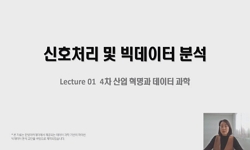The purpose of this study is to identify the major trends in domestic and international research on Dokdo education and to explore future signals to suggest directions for the advancement of Dokdo education. To achieve the research objectives, this re...
http://chineseinput.net/에서 pinyin(병음)방식으로 중국어를 변환할 수 있습니다.
변환된 중국어를 복사하여 사용하시면 됩니다.
- 中文 을 입력하시려면 zhongwen을 입력하시고 space를누르시면됩니다.
- 北京 을 입력하시려면 beijing을 입력하시고 space를 누르시면 됩니다.

독도교육 연구 동향과 미래 방향성 탐색 = Exploring the Trends and Future Directions of Dokdo Education Research
한글로보기https://www.riss.kr/link?id=A109037522
- 저자
- 발행기관
- 학술지명
- 권호사항
-
발행연도
2024
-
작성언어
Korean
-
주제어
독도 ; 빅데이터 분석 ; 텍스트 마이닝 ; 네트워크 분석 ; 미래신호 ; Dokdo ; Big data analysis ; Text mining ; Network analysis ; Future signals
-
등재정보
KCI등재
-
자료형태
학술저널
- 발행기관 URL
-
수록면
83-102(20쪽)
- DOI식별코드
- 제공처
-
0
상세조회 -
0
다운로드
부가정보
다국어 초록 (Multilingual Abstract)
The purpose of this study is to identify the major trends in domestic and international research on Dokdo education and to explore future signals to suggest directions for the advancement of Dokdo education. To achieve the research objectives, this research first collected academic research materials from both domestic and international sources to extract key words. Subsequently, by applying text mining and network analysis techniques, the article categorized these key words and identified research trends through the analysis of word frequency, relationships, and structures. Lastly, to explore future signals for domestic Dokdo education, this study analyzed the increase rates of word frequency, document frequency, and the occurrence frequency over time for key words, applying a weak signal search method. The results showed that while international research on Dokdo education mainly focuses on the role of Dokdo education from the perspective of disputes between Korea and Japan, domestic research on Dokdo education is trending towards diversification. Additionally, through the method of exploring future signals, this article recognized an increasing need for research that reflects topics related to the curriculum, textbooks, and territory, and found attempts to introduce research based on various technologies into the field of Dokdo education. This indicates that future Dokdo education should pay attention to education about territory that reflects changes over time through curriculum and textbook revisions. Furthermore, considering the characteristics of the current generation of students, known as digital natives or the Alpha generation, it is necessary to expand the research horizon into various teaching and learning methods based on future technologies.
동일학술지(권/호) 다른 논문
-
프레임워크로서 IB PYP가 2022 개정 사회과 교육과정에 주는 시사점 탐색
- 한국사회과교육연구학회
- 백선영
- 2024
- KCI등재
-
인공지능 융합 기후환경교육을 위한 수업 연구: 초등 사회과교육과정의 기후환경 내용을 중심으로
- 한국사회과교육연구학회
- 전인성
- 2024
- KCI등재
-
‘인문학 리터러시’ 프로그램 개발을 통한 인문학과 교육 현장의 연결성 강화
- 한국사회과교육연구학회
- 김봉석
- 2024
- KCI등재
-
- 한국사회과교육연구학회
- 송하인
- 2024
- KCI등재




 DBpia
DBpia






